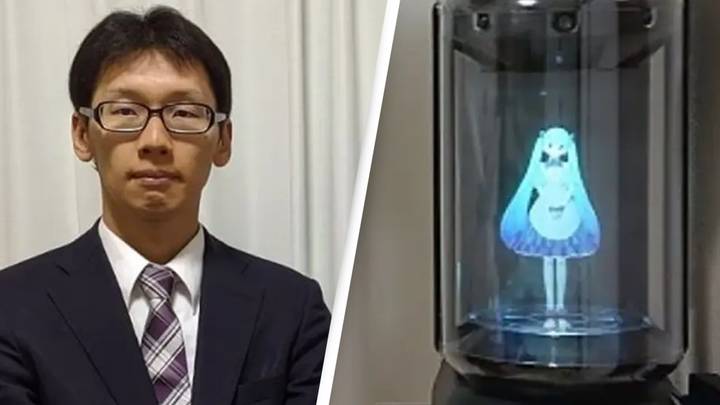A man who wed a holographic representation of his favorite fictional character now faces the challenge of being unable to communicate with his virtual spouse. In an increasingly technology-driven world, the boundary between the virtual and the real becomes more indistinct with each passing day.
This was the situation for Akihiko Kondo, a resident of Tokyo, whose love affair with the holographic character Hatsune Miku garnered global attention. The unconventional relationship gained prominence when Kondo, in 2019, held a ceremonial ‘marriage’ with Hatsune Miku, a virtual singer famous for her presence in video games and even touring with Lady Gaga.
Despite the marriage lacking legal validity, Kondo was unperturbed. Regrettably, the software support facilitating their interactions is now defunct, rendering Kondo unable to communicate with his virtual wife. The company responsible for the service announced the termination of the ‘limited production model’ in March 2020.
Reflecting on his past struggles with relationships and a vow never to marry after challenging experiences in the dating world, Kondo shared that the relationship with the hologram became a source of solace during a work-related crisis.
Despite the communication setback, Kondo affirmed on Instagram in 2022 that his love for Miku remains unwavering. He expressed the hope that the software change is temporary, anticipating a future where communication with his virtual spouse would be restored.
Currently, Kondo shares his life with a life-sized model of Hatsune Miku. The hologram, developed by Gatebox, a company specializing in holographic character devices, has reportedly sold over 3,700 certificates for ‘cross-dimension’ marriages.
Kondo’s narrative aligns with the concept of fictosexuality, wherein individuals establish profound emotional connections with fictional characters. Fictosexuals go beyond mere admiration, often experiencing both emotional and sexual attraction.
As AI chatbots, the metaverse, and digital environments gain prominence, stories like Kondo’s may become less uncommon. These platforms facilitate connections that feel genuine and intimate, blurring the line between fiction and reality. In this evolving landscape, narratives reminiscent of sci-fi movies like “HER” may transition from fiction to relatable experiences in our own lives.





